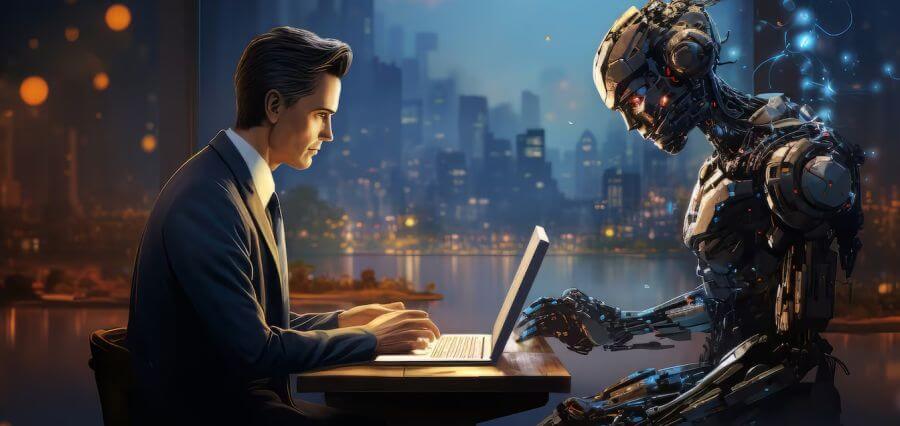Artificial Intelligence (AI) has emerged as a pivotal force in redefining the contours of content creation. This transformative technology is not just automating mundane tasks; it’s crafting new narratives, personalizing user experiences, and unlocking untapped creative potential. At the cusp of this digital renaissance, exploring how AI influences content creation becomes essential, promising to reshape how stories are told, shared, and perceived in the digital age.
In this article, we’ll learn more here and delve into the intricacies of AI-driven content generation, its implications for creators and consumers, and the ethical considerations accompanying this technological evolution.
Current AI Innovations In Content Creation
The landscape of AI innovations in content creation is vast and dynamic, featuring various tools and platforms designed to cater to the diverse needs of writers, artists, and creators. Cutting-edge AI writing assistants lead the charge, offering remarkable capabilities in generating articles, crafting compelling narratives, fine-tuning marketing copy, and streamlining the content production process. For visual artists, AI-powered platforms are revolutionizing how images and designs are created, providing tools to generate intricate art pieces based on textual prompts or enhance existing artwork.
Additionally, AI technologies enable creators to compose original scores or edit videos with unprecedented speed and efficiency in video and music. Together, these innovations optimize content creation workflows and open up new possibilities for creativity and expression.
The Impact Of AI On Creative Professions
The impact of AI on creative professions is both transformative and multifaceted, fundamentally augmenting the creative process. In realms as diverse as writing, visual arts, and music production, AI tools serve not as replacements for human creativity but as amplifiers and collaborators that enhance the scope and depth of creative output. These technologies enable professionals to bypass the more mundane aspects of their work, such as editing or sorting through data, allowing them to devote more time to the intricacies of creative thought and execution.
Furthermore, AI’s capacity to generate novel ideas or render complex data into compelling narratives opens new avenues for creative exploration. This symbiotic relationship between AI and human creativity heralds a new era where the boundaries of what can be imagined and created continually expand, driven by the collaboration between human ingenuity and machine intelligence.
Ethical Considerations and Challenges
The ethical considerations and challenges arising from incorporating AI in content creation, like AI response generators, are profound and multifaceted, touching on originality, copyright, and job displacement. As AI systems become more capable of producing content that rivals or surpasses human-generated work, questions about the authenticity of AI-generated content and the potential infringement on intellectual property rights become increasingly pertinent. There is a growing debate on how to attribute ownership and copyright in cases where content is created by AI, particularly when such content draws from existing works to generate something new.
Furthermore, the concern that AI might displace jobs traditionally held by humans looms large, with creative professions facing uncertainty about the future role of human creators. Balancing the benefits of AI-driven efficiency and innovation against these ethical challenges demands careful consideration and proactive policy-making to ensure that the evolution of content creation remains inclusive, equitable, and respectful of human rights and values.
Conclusion
In conclusion, the evolution of AI in content creation marks a significant milestone in the fusion of technology with human creativity. From the early development of basic algorithms to the current landscape of sophisticated AI tools that assist in writing, visual arts, and music production, AI has emerged as a pivotal collaborator in the creative process. These innovations not only streamline workflows but also amplify the creative output of professionals across various domains.
Despite the ethical considerations and challenges accompanying the rise of AI, the potential for AI to catalyze new forms of creativity and expression is immense. By adopting a proactive approach to integrating AI tools into their work, creators can unlock new possibilities, making the future of content creation an exhilarating frontier with boundless potential. The symbiosis of human ingenuity and machine intelligence paints a promising picture for the next chapter in the realm of creativity, where imagination is the only limit.














